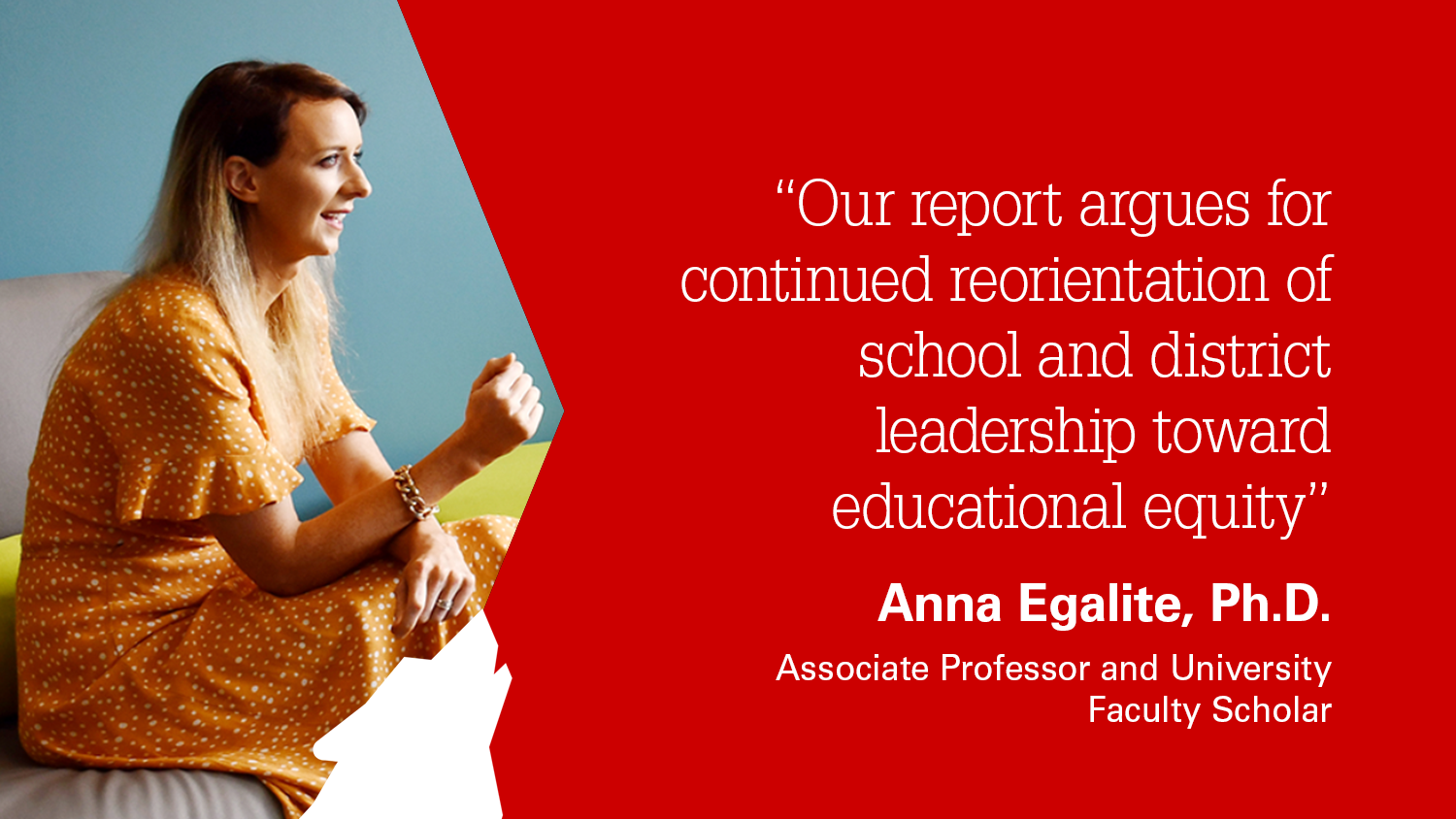Study Co-authored by Associate Professor Anna Egalite Recognized with Education Policy Collaborative’s Policy Product Award for ‘Immediate Evidence of Impact’

A study co-authored by NC State College of Education Associate Professor Anna Egalite, Ph.D., that highlights the impact of principals on student achievement was recently recognized with the 2021 Education Policy Collaborative’s Policy Product Award.
The Education Policy Collaborative (EPC) is a national network of education policy scholars designed to create an open, academic space.
Egalite’s report, “How Principals Affect Students and Schools: A Synthesis of Two Decades of Research,” was honored at the EPC’s annual meeting in August because of the study’s “immediate evidence of impact,” clear focus on dissemination to key stakeholders at the state and district level and because it has already had an influence on the discourse around investment in school improvement.
The findings and recommendations from the report have been considered at the highest levels of the U.S. government, as Egalite and her co-authors shared the study with President Joe Biden’s Educational Transition Team after receiving a request from team lead Linda Darling-Hammond. Additionally, a summary of the findings was included in documents prepared for the U.S. Senate HELP (Health, Education, Labor and Pensions) Committee in connection with confirmation hearings for Education Secretary Miguel Cardona.
“The Education Policy Collaborative has been an important network for my professional growth. The great connections I’ve made through this organization have been incredibly valuable, providing me with mentors, collaborators, grant-writing partners and publishing partners,” Egalite said. To be recognized with an award from a group that I admire so much is a great honor.”
“How Principals Affect Students and Schools,” which was sponsored by a grant from the Wallace Foundation, analyzed six longitudinal studies that collected data from more than 22,000 principals to determine that academic gains made by students who attend a school with an effective principal are even more significant than previously thought.
Replacing a below-average principal, who ranks in the 25th percentile, with an above average principal, who ranks in the 75th percentile, can result in academic gains equivalent to about three months of additional learning in math and reading, according to the study.
This growth is close in scale to the impact of an effective teacher, as research shows replacing a below-average teacher with an above-average one results in student achievement growth equivalent to four months of additional learning for students. However, the impact an effective principal can have on student achievement growth is broader in scope than that of a teacher, the study says, because while a typical elementary school teacher only impacts 21 students annually, a typical principal will affect more than 480 students each year.
In order to determine what makes for an effective principal, Egalite and her co-authors synthesized research from 200 additional studies from the past 20 years to identify three primary skill areas — people skills, instructional skills and organizational skills — that principals need for school success.
The report also called for a reorientation towards educational equity as the number of principals of color has not kept pace with the increase in the number of students of color and offers additional policy and practice implications from their findings. These include the need for investment in improved preparation and support to cultivate high-quality principals, and the need for a focus on the identified skills and behaviors in pre-service principal preparation programs, pipeline initiatives and in-service learning opportunities.
- Categories:


